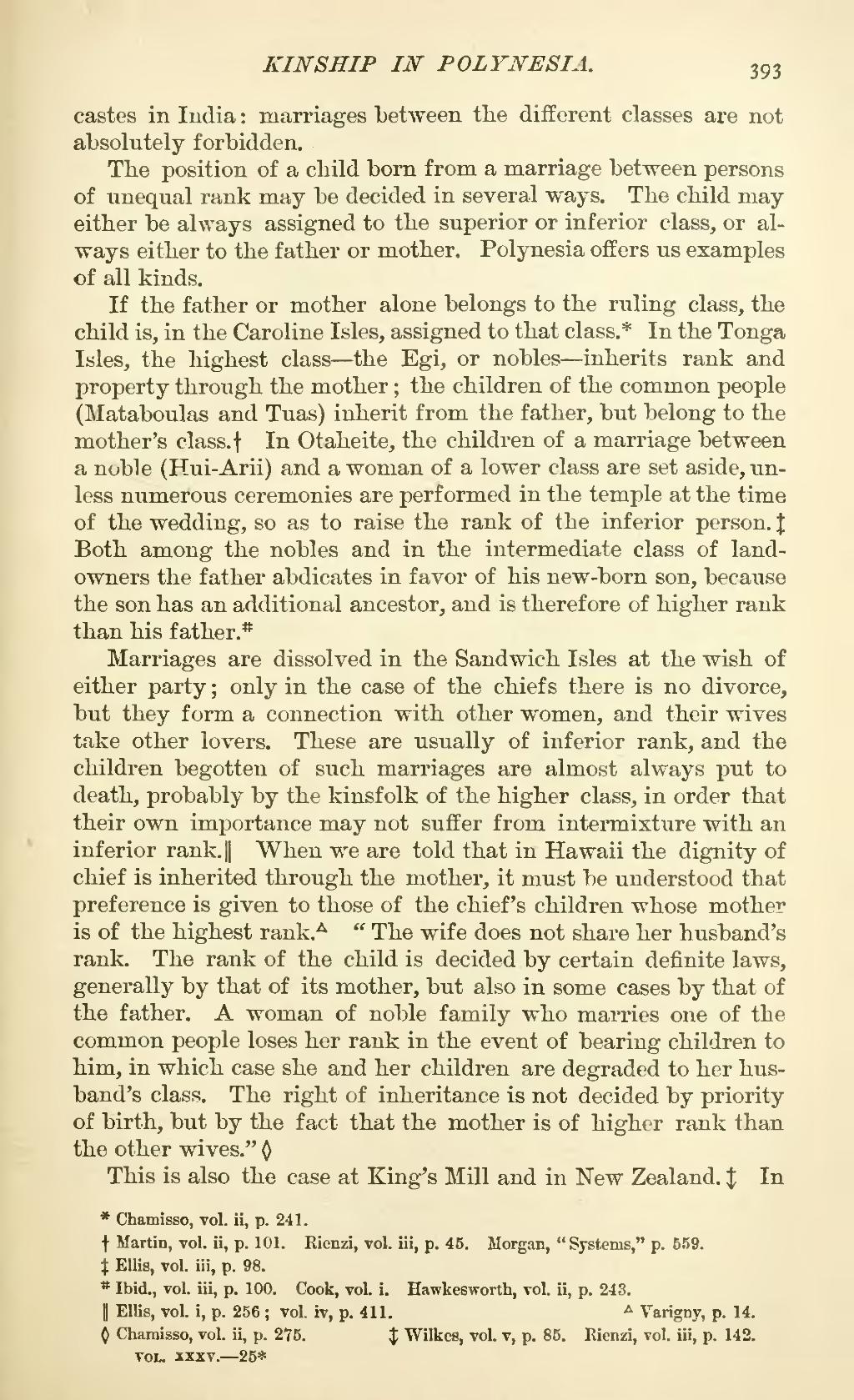castes in India: marriages between the different classes are not absolutely forbidden.
The position of a child born from a marriage between persons of unequal rank may be decided in several ways. The child may either be always assigned to the superior or inferior class, or always either to the father or mother. Polynesia offers us examples of all kinds.
If the father or mother alone belongs to the ruling class, the child is, in the Caroline Isles, assigned to that class.[1] In the Tonga Isles, the highest class—the Egi, or nobles—inherits rank and property through the mother; the children of the common people (Mataboulas and Tuas) inherit from the father, but belong to the mother's class,[2] In Otaheite, the children of a marriage between a noble (Hui-Arii) and a woman of a lower class are set aside, unless numerous ceremonies are performed in the temple at the time of the wedding, so as to raise the rank of the inferior person.[3] Both among the nobles and in the intermediate class of landowners the father abdicates in favor of his new-born son, because the son has an additional ancestor, and is therefore of higher rank than his father.[4]
Marriages are dissolved in the Sandwich Isles at the wish of either party; only in the case of the chiefs there is no divorce, but they form a connection with other women, and their wives take other lovers. These are usually of inferior rank, and the children begotten of such marriages are almost always put to death, probably by the kinsfolk of the higher class, in order that their own importance may not suffer from intermixture with an inferior rank.[5] When we are told that in Hawaii the dignity of chief is inherited through the mother, it must be understood that preference is given to those of the chief's children whose mother is of the highest rank."[6] "The wife does not share her husband's rank. The rank of the child is decided by certain definite laws, generally by that of its mother, but also in some cases by that of the father. A woman of noble family who marries one of the common people loses her rank in the event of bearing children to him, in which case she and her children are degraded to her husband's class. The right of inheritance is not decided by priority of birth, but by the fact that the mother is of higher rank than the other wives."[7]
This is also the case at King's Mill and in New Zealand.[8] In
- ↑ Chamisso, vol. ii, p. 241.
- ↑ Martin, vol. ii, p. 101. Rienzi, vol. iii, p. 45. Morgan, "Systems," p. 659.
- ↑ Ellis, vol. iii, p. 98.
- ↑ Ibid., vol. iii, p. 100. Cook, vol. i. Hawkesworth, vol. ii, p. 243.
- ↑ Ellis, vol. i, p. 256; vol. iv, p. 411.
- ↑ Varigny, p. 14.
- ↑ Chamisso, vol. ii, p. 275.
- ↑ Wilkes, vol. v, p. 85. Rienzi, vol. iii, p. 142.
